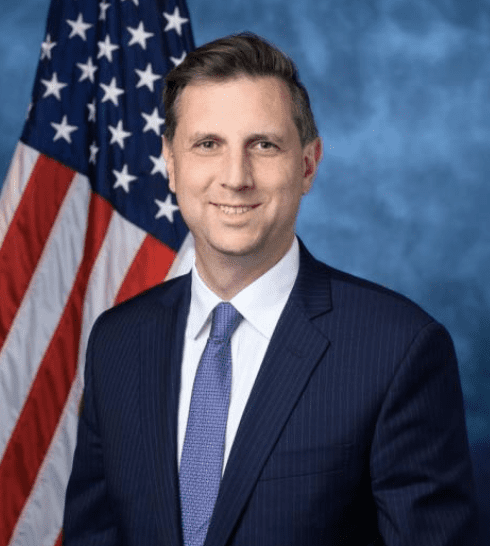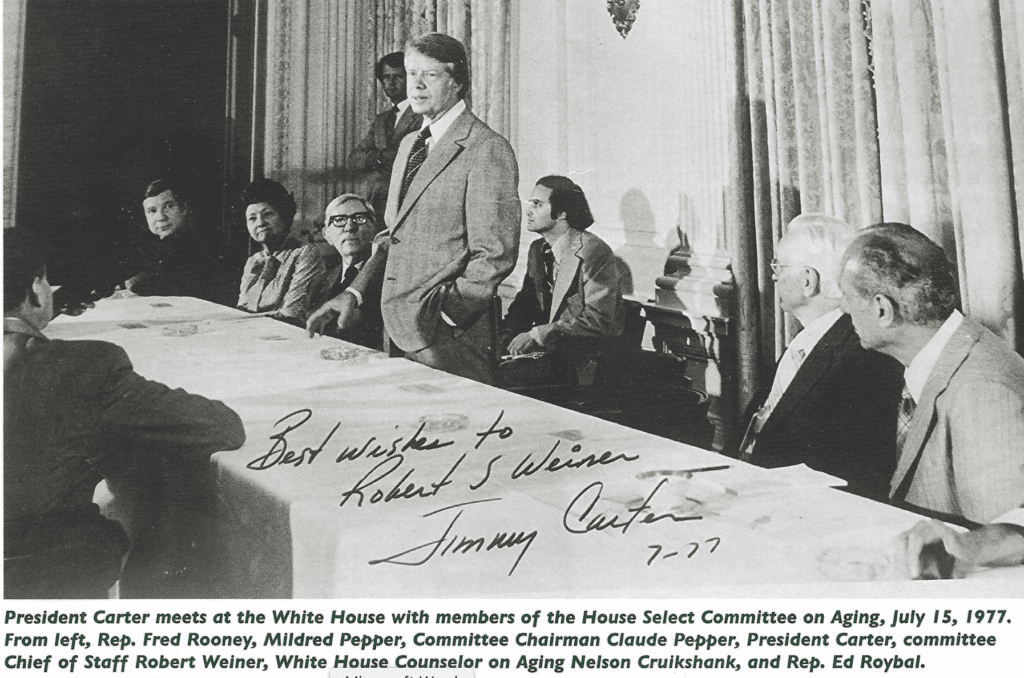Search Posts
Recent Posts
- Real Estate in RI: Seaside waterfront communities are all the rage. Who’s buying – Emilio DiSpirito June 6, 2025
- Outdoors in RI: 2A votes, Charter Yachts, active summer programs, garden tours, aquatic weeds… June 6, 2025
- All About Home Care, with two Rhode Island locations, closing after 22 years in business June 6, 2025
- GriefSPEAK: Angel wings with footprints – Mari Nardolillo Dias June 6, 2025
- Rhode Island Weather for June 6, 2025 – Jack Donnelly June 6, 2025
Categories
Subscribe!
Thanks for subscribing! Please check your email for further instructions.

Congressman Magaziner takes baton on bringing back House Aging Committee – Herb Weiss
by Herb Weiss, contributing writer on aging issues
Over 30 years ago, the US House Democratic leadership’s belt-tightening efforts to save $1.5 million resulted in the termination of the House Permanent Select Committee on Aging. Congressman Seth Magaziner (RI-2) has picked up the baton from former Congressman David Cicilline who sought to bring back the House Aging Committee during the 114th-117th Congresses.

At press time, Magaziner’s H. Res. 1029, introduced Feb. 23, 2024, has been referred to the House Committee on Rules for mark-up, and if passed, will be considered by the full House.
“Older Americans deserve a seat at the table, particularly when it comes to important issues such as protecting Social Security and Medicare,” said Magaziner in a statement announcing his legislative efforts to pass H. Res. 1029. “I am proud to introduce legislation to re-establish a House Permanent Select Committee on Aging, which will advocate for America’s aging population and ensure seniors’ voices are heard when it comes to federal policymaking,” he says.
Every day 12,000 Americans turn 60. By 2030, nearly 75 million people in the U.S. — or 20% of the country — will be age 65 or older. As our country’s aging population grows, the need for support and services provided under programs like Social Security, SSI, Medicare, Medicaid and the Older Americans Act increases.
“Ensuring that seniors can thrive in our communities should always be a priority for the House of Representatives,” said Congressman Gabe Amo (RI-1) one of 15 original cosponsors of H. Res. 1029, who initially called for bringing back the House Aging Committee during his campaign to win former Cicillini’s vacant seat.
“That is why it is essential that there is a dedicated committee for lawmakers to focus on the issues that impact seniors’ quality of life. From preserving and expanding Social Security and Medicare to reducing the cost of prescription drugs to keeping seniors in safe and stable housing, there are so many issues to address under the leadership of a Special Committee on Aging. Seniors in Rhode Island and across the country deserve nothing less,” says Amo.
The House can readily create an ad hoc (temporary) select committee by approving a simple resolution that contains language establishing the committee—giving a purpose, defining membership, and detailing other aspects, says EveryCRSReport. Salaries and expenses of standing committees, special and select, are authorized through the Legislative Branch Appropriations bill.
Putting a spotlight on aging issues
H. Res. 1029 simply amends the Rules of the House to establishes a Permanent House Select Committee on Aging, noting that this panel shall not have legislative jurisdiction, but it’s authorized to conduct a continuing comprehensive study and review of the aging issues, such as income maintenance, poverty, housing, health (including medical research), welfare, employment, education, recreation, and long-term care.
The 213-word resolution would have authorized the House Aging Committee to study the use of all practicable means and methods of encouraging the development of public and private programs and policies which will assist seniors in taking a full part in national life and which will encourage the utilization of the knowledge, skills, special aptitudes, and abilities of seniors to contribute to a better quality of life for all Americans.
Finally, the House Resolution would also allow the House Aging Committee to develop policies that would encourage the coordination of both governmental and private programs designed to deal with problems of aging and to review any recommendations made by the President or by the White House Conference on aging in relation to programs or policies affecting seniors.’
Aging organizations, advocates call for passage of H. Res. 1029
According to Max Richtman, President and CEO of the Washington D.C.-based National Committee to Preserve Social Security and Medicare (NCPSSM), jurisdiction over many programs affecting seniors is shared by multiple standing committees, which can make it difficult for them to fully explore solutions that do not fit squarely into a single committee’s expertise. Such issues include a variety of intergenerational concerns that merit attention, such as the growing demands on family caregivers and our intractable retirement security crisis. “An inter-disciplinary approach to these issues can best be advanced by a Select Committee with broad jurisdiction,” he says.
“Re-establishing a Select Committee on Aging in the House would also complement the strong bipartisan work of its counterpart in the Senate,” says Richtman. “In recent years, the Senate Special Committee on Aging has effectively promoted member understanding on a range of issues,” he says, noting that these issues include concerns of grandparents raising grandchildren, elder abuse and fraud, the effects of the COVID-19 pandemic on older Americans and their families, the importance of financial literacy in planning for retirement, and the costs associated with isolation and loneliness.
“Historically, the House Select Committee on Aging served as a unique venue that allowed open, bipartisan debate from various ideological and philosophical perspectives to promote consensus that, in turn, helped facilitate the critical work of the standing committees. We believe that issues affecting seniors would be best advanced by the re-establishment of such a Committee in the House,” adds Richtman.
NCPSSM will endorse H. Res. 1029 and plans to promote it to House lawmakers. If the Democrats take control of the House next November, the organization will approach the Democratic House Speaker when he is crafting rules to operate and request that the rules include reestablishing the HSCoA.
Nancy Altman, President of the Washington, DC-based Social Security Works, strongly supports Magaziner’ efforts to bring back the HSCoA. “Social Security is a critical issue for older Americans. “There’s so much misinformation out there about Social Security, and as a result many people aren’t confident they’ll get the benefits they’ve earned. More accurate information coming from Congress would help,” she says.
According to Altman, the Social Security Subcommittee of the House Ways and Means Committee does incredibly important work, but Ways and Means has such a broad jurisdiction that Social Security and other aging related issues don’t always get the attention they deserve. “A House Aging Committee could shine an important spotlight, informing the public, the media, and fellow members,” she notes.
Altman offers suggestions to the Rhode Island Congressman to increase the chances for passage of H. Res. 1029. “If he doesn’t already have Republican co-sponsors, he should try to get some since they’re more likely to convince Speaker Mike Johnson to create the committee,” she says.
In addition to working for passage of H. Res. 1029, this Congress, Altman recommends that Magaziner start working now to line up Democrats to push for the reestablishing the House Select Committee on Aging at the beginning of the next Congress, where there is likely to be Democratic control.

Robert S. Weiner, now President, Robert Weiner Associates News, was House Aging Committee Chief of Staff under Chairman Claude Pepper, from 1976 to 1980, when the Florida lawmaker headed the HSCoA, as a force to be reckoned with in his advocacy of America’s seniors.
“I saw first-hand the power of that committee when we met with Presideent Jimmy Carter and he endorsed the HSCoA’s efforts to abolish mandatory retirement,” says Weiner, noting that the bill passed 359-2 in the House and 89-10 in the Senate, and signed into law by the President.
According to Weiner, the Carter Center recently invited him to pen an article this fall, for their “last print edition of the “Carter-Mondale Newsletter,” entitled “Carter, Pepper Strike Blow Against Age Discrimination.”
“We also held high-powered hearings on nursing home abuses, cancer insurance fraud, the need for expanded home health care (which ultimately became law), elder abuse, and pensions,” adds Weiner. As to Social Security, the Pepper-O’Neill-Reagan deal guaranteed the solvency of Social Security through 2034.
As to legislative strategy, Weiner suggests that Magaziner get 100 plus sponsors – Democrats and Republicans – by bringing a copy of the resolution to the House floor and getting cosponsoring significantly efficiently and quickly by first-hand recruiting action. He might even ask to address the House for a one-minute speech about the importance of passing H. Res. 1029.
“Both parties are nuts if they don’t help seniors by having a dedicated House Select Committee on Aging,” asserts Weiner.
“This is a significant opportunity for the Congress to take a comprehensive view as to how we as a country wish to better support the aging of America. Older adults suffered the most during the COVID pandemic — more than 90% of the deaths were individuals over 60. Many older adults are still suffering from loneliness and social isolation. Such a bipartisan effort led by Congressmen Magaziner and Amo would be historic,” stated Vincent Marzullo, who served 31 years as a career federal civil rights and social justice administrator at the National Service Agency, and a well-known aging advocate. He serves on Magaziner’s he RI-02 Seniors Advisory Committee.
The clock is ticking. With the upcoming presidential elections taking place in about 246 days, Magaziner must quickly work to get House Republicans cosponsors to get House Speaker Mike Johnson to allow a vote in the House Rules Committee. Without support of his caucus, he is likely to say no.
Magaziner must convince Congressmen Brian Fitzpatrick (R-PA) and Josh Gottheimer (D-NJ), co-chairs of the “Problem Solvers Caucus,” consisting of essentially an equal number of 63 Republican and Democratic lawmakers, to push for passage of H. Res. 1029. This may be the only way to pass a resolution to reestablish HSCoA in a Republican-controlled House.
___
To access all of Herb’s articles published by RINewstoday, go to https://rinewstoday.com/herb-weiss/

Herb Weiss, LRI -12, is a Pawtucket-based writer who has covered aging, health care and medical issues for over 43 years. To purchase his books, Taking Charge: Collected Stories on Aging Boldly and a sequel, compiling weekly published articles, go to herbweiss.com.

